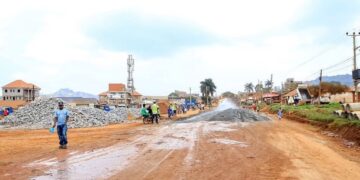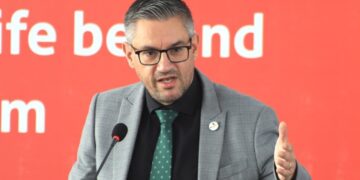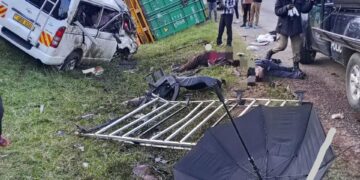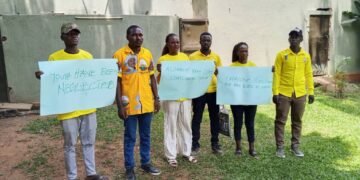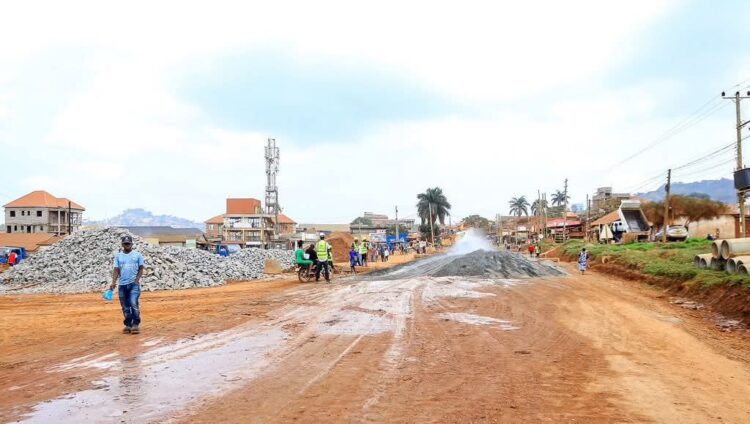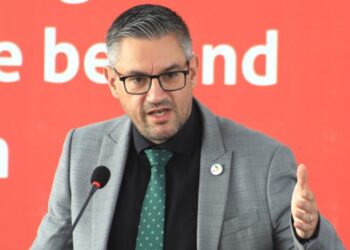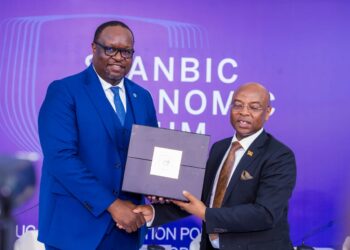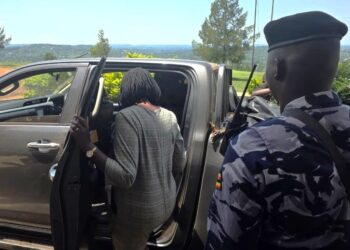By Leonard Kamugisha Akida,
KAMPALA
Kampala city leaders have voiced frustration over deteriorating service delivery under the Kampala Capital City Authority (KCCA), citing financial constraints and systemic inefficiencies that have crippled basic urban services.
Speaking during a leaders’ meeting with President Yoweri Museveni at the MUBS Graduation Grounds on Saturday, Kampala Central Division Mayor Salim Uhuru listed uncollected garbage, clogged drainage channels, and “sorry state” roads among the most urgent urban challenges. He attributed these to drastic budget cuts that have left KCCA struggling to function.
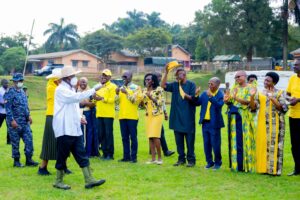
“KCCA’s budget was cut from Shs803 billion to Shs555 billion, a shortfall of Shs246 billion,” Uhuru said. “These financial constraints have deeply affected our ability to deliver even the most basic services to the residents of Kampala.”
The leaders appealed to the President to intervene by increasing budgetary allocations to KCCA to help address the growing infrastructure and sanitation crisis.
In response, President Museveni acknowledged the capital’s visible strain on Kampala’s sanitation and urban planning systems, and called for a complete overhaul of the city’s urban planning strategy. He blamed vested interests and corruption for frustrating earlier efforts to improve city infrastructure.
“We need to plan how to build a modern city, constructing storeyed buildings for the current population and for future generations,” Museveni said. “We tried to do it in Nankulabye, Nakawa, Naguru and at the bus parks, but corrupt people fought against it. Let’s think about that because it’s part of development.”
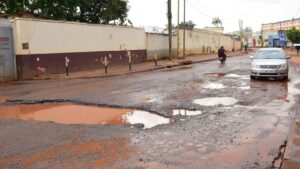 The President instructed Minister for Kampala Hajjati Minsa Kabanda to investigate the causes behind the failure of previous development efforts in the city. He also warned ministries responsible for infrastructure like Works and Transport, and Local Government against delayed interventions.
The President instructed Minister for Kampala Hajjati Minsa Kabanda to investigate the causes behind the failure of previous development efforts in the city. He also warned ministries responsible for infrastructure like Works and Transport, and Local Government against delayed interventions.
“They should not wait until roads are completely unusable,” Museveni said, referencing neglected roads in Mpigi – Nakawuka, and Ssekanyonyi – Busunju roads in Mpigi and Mityana respectively. “Even murram roads need timely maintenance.”
Singling out the Electronic Plate System (EPS) for vehicle tracking, the president highlighted corruption within government-run programs. He said while the system is critical to crime fighting, some officials colluded with foreign contractors to inflate costs.
“Digital number plates remain important in crime prevention, but our corrupt people likely linked to criminals colluded with the Russian manufacturers to hike EPS charges,” the President said. “I will one day tell you who was involved.”
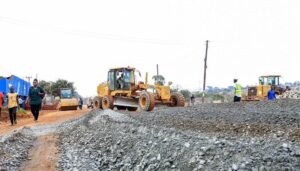
Nevertheless, President Museveni said Uganda is peaceful, and warned against any attempts to destabilize the country.
“Uganda is secure. Nobody can bring war here,” he said, referencing recent high-profile murders in Mukono and Entebbe. “We are going to deal with those criminals because of the systems we now have CCTV, forensic labs, and improved communication networks.”
He emphasized the government’s strength in maintaining peace and combating crime.
Museveni further urged citizens to shift from subsistence to commercial production, as part of the government’s long-term economic strategy.
During his visit to the capital, the President also monitored ongoing Parish Development Model (PDM) projects, including a poultry farm in Nakawa Division and a women’s tailoring group in Mutungo.
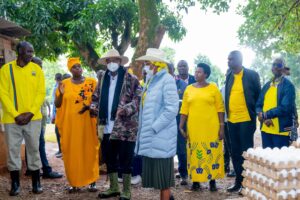
He pledged increased support for PDM SACCOs in urban areas, citing the higher population density and economic potential of cities.
“The government is committed to strengthening urban livelihoods through PDM. We shall increase funding to match the demand in places like Kampala,” he said.
The visit forms part of the President’s broader campaign to oversee PDM implementation and reaffirm his administration’s commitment to development, transparency, and public service delivery.
